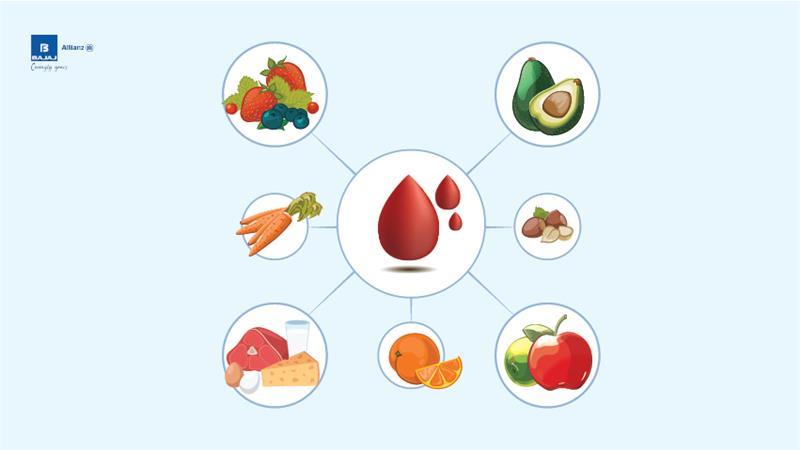Seven Deadliest Diseases of Today: An Urgent Call to Action

The list of the deadliest illnesses can include chronic diseases that are slow to develop and take time to accumulate. It is important to remember that many of these deadly illnesses are preventable. Knowing the risks and possible prevention methods can help you avoid these deadly diseases. Many serious diseases can easily be avoided by having access to high-quality healthcare. Being able to access a good quality of healthcare can help prevent many serious diseases. Health Insurance It is important to have insurance because it will provide the financial assistance needed. To lower the risk of seven deadly diseases, you must have health insurance and take certain precautions.
Coronary Artery Disease or Ischemic Heart Disease
When the blood vessels that supply the heart narrow, it can lead to arrhythmias, chest pain and heart failure. Reduce your risk of CAD by taking medications, exercising regularly, eating low-sodium food, quitting smoking and limiting alcohol consumption.
Stroke
When a brain artery becomes blocked or leaks out, brain cells are deprived of oxygen within minutes. A stroke may manifest as sudden numbness or confusion, or difficulties walking and seeing. Untreated strokes can lead to long-term disabilities and impairments. Similar preventive measures to those for CAD can reduce stroke risks. Word of advice: It is important to have financial support for diseases like strokes, which can sometimes require long-term hospitalisation and intensive care. With a Health insurance A critical illness plan is a good idea. The plan provides a lump sum amount that can be used as one sees fit. * All claims are subject to the terms and conditions of your health insurance policy.
Lower Respiratory Infections
These infections affect the airways and lungs. These infections can be caused by influenza (the flu), bronchitis and tuberculosis. These infections can cause persistent coughing that may produce bloody sputum. Other symptoms include fever, sweating and chills. Annual flu shots and vaccinations are the best way to reduce your risk of contracting these infections. Handwashing regularly with soap and warm water is recommended.
Chronic Obstructive Pulmonary Disorder (COPD)
COPD, which is expected to cause 148,512 total deaths by 2020, is among the most deadly diseases of today. COPD is a lung disease that advances slowly and causes breathing difficulties. Two of its variations are chronic bronchitis, and emphysema. COPD may be incurable but its progression can be slowed down with medication. It is important to avoid smoking (including secondhand smoke) as well as other lung irritants.
Respiratory Cancers
Cancers of the larynx and trachea are also included. Smoking, second-hand smoking, environmental toxins and household pollutants such as mould and fuels are the primary causes of lung cancer. There is not much clarity about how to prevent respiratory cancers. Early diagnosis and regular check-ups can help in some cases.
Diabetes
Diabetes is a grouping of diseases that affect insulin production in the body. This can lead to many health problems. Diabetes, if not managed, can cause damage to the blood vessels and nerves, as well as complications such a kidney failure, blindness and impaired wound healing. In 2019, diabetes was estimated to have caused 2 million deaths. Diabetes can be prevented or delayed by a healthy diet, regular exercise, medication, regular checkups, and treatment of complications. Did You Know? You must tell your insurer if you’ve recently been diagnosed with diabetes. Renew health insurance plan. Diabetes can have a significant impact on your health. Your insurer should know this. * All claims are subject to the terms and conditions of your health insurance policy.
Alzheimer’s disease and other forms of dementia
Alzheimer’s is a progressive disease that affects the memory, decision-making and cognitive functions. This condition can impact thinking, reasoning and everyday behaviors. Alzheimer’s disease begins with mild memory issues. A person with Alzheimer’s may experience memory lapses and have trouble recalling information. The individual’s memory may be affected for long periods of time as the disease progresses. Alzheimer’s is not preventable at this time. Researchers are still unable to determine why some people develop Alzheimer’s while others do not. If you are diagnosed with one of these diseases, a health insurance policy or critical illness plan may be able to help. It all depends on the coverage provided by the plan. The list of plan exclusions is a good place to start. You can use the calculator to get an estimate of the premium for the plan that best suits your needs. Calculator for health insurance . * All claims are subject to the terms and conditions of your health insurance policy.





